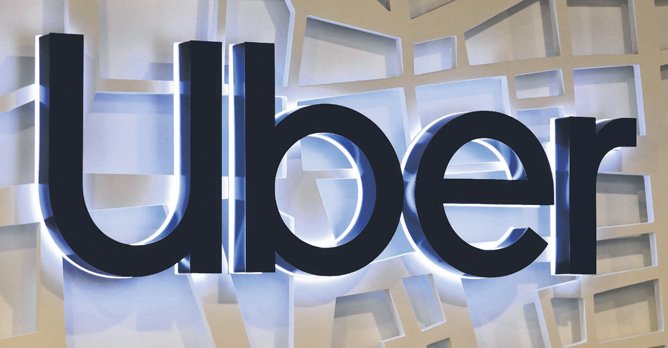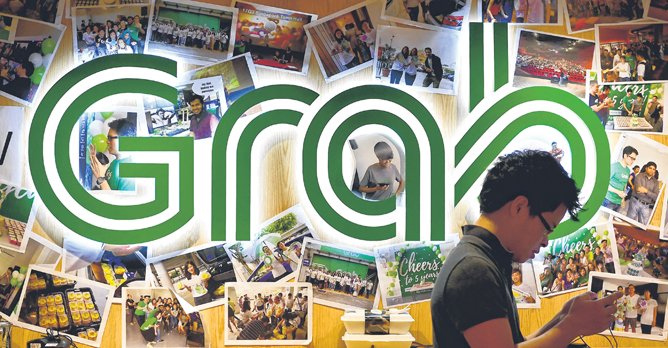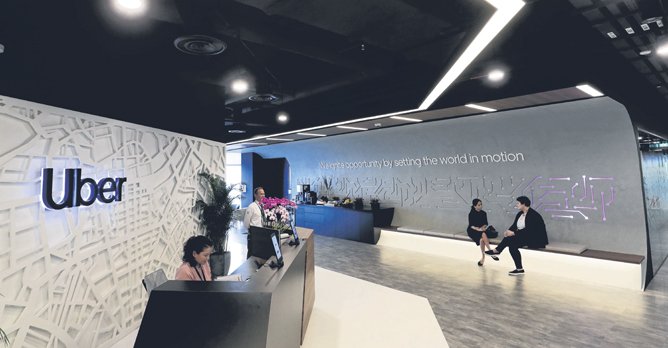Uber's appeal over anti-competitive Grab merger dismissed, $6.58m fine upheld
14 Jan 2021|1,173 views
Ride-hailing firm Uber will have to pay a $6.58 million penalty after its appeal against a 2018 decision that it had breached competition laws here was dismissed last month.
An appeal board chaired by Senior Counsel Andre Yeap upheld the fine and other measures imposed by the Competition and Consumer Commission of Singapore (CCCS), which had found that Grab and Uber's merger in March 2018 was anti-competitive.

Uber had sold its South-East Asian business to Grab for a 27.5% stake in Grab. Before then, the firms had a combined market share that was more than five times the next biggest player, ComfortDelGro, and the deal would have crossed thresholds indicating potential competition concerns, the appeal board said.
Uber had sought to set aside the CCCS's 2018 verdict or reduce the penalty imposed. After a six-month investigation, the commission ruled in September 2018 that the Grab-Uber deal reduced market competition and resulted in Grab getting an 80% share of Singapore's ride-hailing market, up from 50% previously.
Noting then that it was too late to unwind the deal, the commission spelt out a series of measures to cushion the impact on commuters, drivers and potential competitors. This included requiring Grab to remove exclusivity arrangements with taxi fleets and drivers, as well as maintain its pre-merger pricing algorithm and driver commission rates.

But the appeal board agreed with the CCCS, noting that without the measures imposed, the Grab-Uber deal would have allowed Grab to request Uber not to sell its car rental arm Lion City Rentals to another party. Grab would also have had the ability and incentive to reinforce its position by entering into exclusivity arrangements.
The board said Gojek's entry was not of sufficient scope to constrain Grab, noting that Grab had deeper pockets and would have been able to invest more heavily in order to maintain its competitive advantage post-merger, posing a significant barrier to entry.
The board also pointed to internal documents and funding estimates from both Uber and Grab indicating that they had expected the deal to increase Grab's ability to increase prices. This happened in the wake of the merger and even after Gojek's entry.

She said, "Singapore's voluntary notification merger regime aims to strike a balance between safeguarding competition and being pro-business... Should CCCS have reasonable grounds to suspect that an anti-competitive merger has been completed or is anticipated, it is empowered to investigate and take appropriate enforcement action."
Uber has until 26 January 2021 to appeal to the High Court on specific points of law or the amount it needs to pay. The Straits Times has contacted the firm for comment.
Ride-hailing firm Uber will have to pay a $6.58 million penalty after its appeal against a 2018 decision that it had breached competition laws here was dismissed last month.
An appeal board chaired by Senior Counsel Andre Yeap upheld the fine and other measures imposed by the Competition and Consumer Commission of Singapore (CCCS), which had found that Grab and Uber's merger in March 2018 was anti-competitive.

Uber had sold its South-East Asian business to Grab for a 27.5% stake in Grab. Before then, the firms had a combined market share that was more than five times the next biggest player, ComfortDelGro, and the deal would have crossed thresholds indicating potential competition concerns, the appeal board said.
Uber had sought to set aside the CCCS's 2018 verdict or reduce the penalty imposed. After a six-month investigation, the commission ruled in September 2018 that the Grab-Uber deal reduced market competition and resulted in Grab getting an 80% share of Singapore's ride-hailing market, up from 50% previously.
Noting then that it was too late to unwind the deal, the commission spelt out a series of measures to cushion the impact on commuters, drivers and potential competitors. This included requiring Grab to remove exclusivity arrangements with taxi fleets and drivers, as well as maintain its pre-merger pricing algorithm and driver commission rates.

But the appeal board agreed with the CCCS, noting that without the measures imposed, the Grab-Uber deal would have allowed Grab to request Uber not to sell its car rental arm Lion City Rentals to another party. Grab would also have had the ability and incentive to reinforce its position by entering into exclusivity arrangements.
The board said Gojek's entry was not of sufficient scope to constrain Grab, noting that Grab had deeper pockets and would have been able to invest more heavily in order to maintain its competitive advantage post-merger, posing a significant barrier to entry.
The board also pointed to internal documents and funding estimates from both Uber and Grab indicating that they had expected the deal to increase Grab's ability to increase prices. This happened in the wake of the merger and even after Gojek's entry.

She said, "Singapore's voluntary notification merger regime aims to strike a balance between safeguarding competition and being pro-business... Should CCCS have reasonable grounds to suspect that an anti-competitive merger has been completed or is anticipated, it is empowered to investigate and take appropriate enforcement action."
Uber has until 26 January 2021 to appeal to the High Court on specific points of law or the amount it needs to pay. The Straits Times has contacted the firm for comment.
Latest COE Prices
December 2025 | 2nd BIDDING
NEXT TENDER: 07 Jan 2026
CAT A$109,501
CAT B$115,102
CAT C$77,003
CAT E$119,000
View Full Results Thank You For Your Subscription.




















